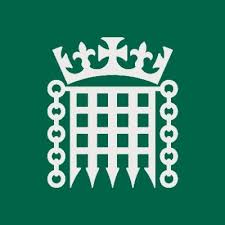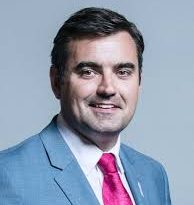Chris Loder – 2022 Speech on Levelling Up Rural Britain
The speech made by Chris Loder, the Conservative MP for West Dorset, in the House of Commons on 9 November 2022.
It is a pleasure to follow my constituency neighbours, my hon. Friends the Members for North Dorset (Simon Hoare) and for South Dorset (Richard Drax). I hope that the House will allow me to make some comments, although I am at risk of repeating what they said. I congratulate and thank my hon. Friend the Member for North Devon (Selaine Saxby), whose quest to hold this important debate we all thoroughly backed.
It is clear to me that this House does not give enough time to debate and discuss the rural issues of the day. We have some important questions to ask ourselves. Why is levelling up not focused on rural areas in the same way it is on urban areas? Why does rural hardship not seem to matter in the same way as urban poverty? Why do rural jobs attract less pay than those in urban areas? Why does Transport for London get £1.7 billion of Government money to bail it out yet Dorset Council gets hardly anything—especially when we have the worst frequency rail line in the country? I just wanted to let the Minister know that.
I do not want the Treasury Green Book to prioritise rural areas; I want it to be fair to all parts of the United Kingdom, including rural Dorset. Why do sixth-formers— 16 and 17-year-olds—in rural Dorset have to pay to get on the school bus, when those youngsters do not have to do so in urban areas? In certain pockets of West Dorset and, indeed, the wider Dorset area, social mobility is among the worst in the country. The real levelling up required in this country is in rural Britain, which is why I am so delighted to contribute to the debate.
My hon. Friend the Member for North Dorset clearly articulated some good statistics. I also have them in my speech—he has pinched them—but let me focus on a couple. It is totally unacceptable to me and my constituents —and, I think, to my constituency neighbours—that we have one of the highest council taxes in the country but zero revenue support grant, yet in places such as inner London there are boroughs with the lowest council tax in the country that receive some £24 million in revenue support grant.
Simon Hoare
Does my hon. Friend agree that we also have hanging over us the spectre of negative revenue support grant, whereby the Government might actually tell Dorset Council that it needs to pay some money back? Where that money would come from I have no idea. Does he agree that that would just add, for want of a better phrase, insult to injury?
Chris Loder
I wholly agree with my hon. Friend and want to relay that message to the Minister as well: I hope we do not get into the territory of negative RSG as there would be mass rebellions from the Dorset MPs if that were the case.
Covid was hugely damaging to the economy of West Dorset; we are not starting from a level playing field. I lost 18% of my businesses in West Dorset during the covid period: some 1,200 businesses shut. So we are already starting from a lower place, but it is very difficult to make the case on this because it feels as though we are always starting from behind the line.
My hon. Friends and constituency neighbours have talked about adult social care and I want to reiterate the point. Dorset County Hospital, in Dorchester in my constituency, is very challenged: to put the problem into perspective, the number of patients discharged into social care, at the expense of the council, has risen threefold over the last three years. The situation with police funding, fire funding and other areas is equally difficult, yet it is still hard to get any real understanding of that from the Government.
Huge reform is required in housing in rural areas. My hon. Friend the Member for North Devon articulated very well in her speech some of the difficulties she faces with second homes and properties set aside often for full-time Airbnb lettings, and that has caused enormous difficulty in parts of West Dorset, too. Visitors could walk through some villages on a winter evening and almost think they are in a ghost town because so few properties are occupied. We cannot go on in that way and expect doctors, nurses, teachers and police officers to be able to live and work in the community.
We have gone on for too long without real action and progress in this area. Parts of rural Britain are being held economically hostage by unfair bureaucracies, and not just Government Departments. I have mentioned the Treasury Green Book and fairness between rural Britain and urban areas in the assessment of infrastructure investment, but I could also mention the Environment Agency, the Rural Payments Agency—I could keep going. Rural Britain finds the level of bureaucracy very difficult. That constrains our ability to make real economic progress and contribute to the wider economic growth of the country. I ask the Minister to take due note of that.
I understand that at next week’s Prime Minister’s questions I will have the opportunity to speak to the Prime Minister, and I tell the Minister in advance that I will ask the Prime Minister to set up a rural taskforce so that we do not need to continually share, in debates of this nature, the difficulties that we face. I want rural Britain to get turbocharged and to lead the way. We are very fortunate in rural Britain today: some of the most entrepreneurial, creative, innovative solutions are found in this country’s rural areas. We need those solutions to help the wider country—indeed, some urban areas would do well to take them.
In addition to the rural taskforce that I will ask the Prime Minister to set up, the suggestion from my hon. Friend the Member for North Dorset that there should be a rural tsar is well made. I hope the Minister will consider those points in winding up the debate.


